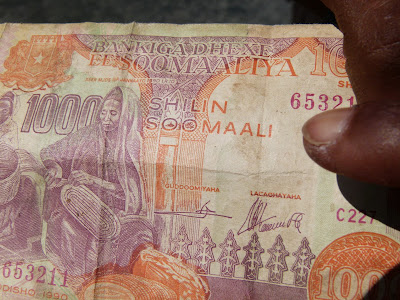Day 65 – 21 December 2011. The last court day for the year.
A new challenge against the judge, decision on the previous challenge, several statements by the defendants and a special folder.
The day started with one of the lawyers reading out a challenge against the judge on the basis that the judge is biased. The reasons being that the judge – in his last decision to decline an application for bail for the under-age defendants – suggested that anyone who showed sympathy for the defendants would also be prepared to aid their escape. An accusation that is based purely on speculation. The judge had used this reason before and, when asked for any evidence of this, back-tracked and refused to give any more details. Now the judge has used this line of argument again.
The second reason for his bias was a criticism of the manager of a facility of youth accommodation. The organisation had been asked by both the defence and by the Hamburg Youth Authority about the possibility of housing the three under-age defendants in one of their flats. As a result, the manager had attended a few court hearings and had applied for a visit to the youth detention centre, together with her staff and some of the youth that currently live there. This is part of the participatory concept of the organisation. The judge has turned this against the defendants by claiming the manager was 'not maintaining the required professional distance' to the defendants. An obvious case of the judge stepping outside his competency. This has been the third such challenge against the judge.
After that, one defendant after another made personal statements. They were polite but firm challenges to the judge to end the trial. One could feel the frustration of the defendants, having been in detention for a year and a half, without knowing how much more time they would have to spend locked up, their health deterioating and having to sit through 65 days at court without understanding much of the proceedings. Here are a few quotes:
“I am no longer alive. I can't continue to sit here like a school child in a classroom. Please don't hesitate to pass a verdict. I don't mind what it is, as long as it's soon.”
“I've been getting more and more ill in prison. I am mentally no longer present, I think of my family, they are dependent on me. I therefore ask you to pass whatever verdict you find suitable.”
“I have been waiting for my verdict for thirteen months, I've been very ill. I am a prisoner of my illness. When I try to explain my situation to my family, they don't believe me. I have instructed my lawyers not to file any more applications. There must be an end now. Enough is enough.“
And another queried the judge and said:
“I would like to ask you a question: do you think it is a person's right to try to save themselves if they see a chance to do so? I want to save myself. My lawyers have tracked down a witness who was willing to testify that I was forced to participate. You have spoken to the witness. I want to pursue this.“
Then, during the lunch break a decision on the previous challenge against the judge was announced. The judge read out the ruling, made by his colleagues, who found that there was no bias. This doesn't come as a surprise, but what we didn't expect was that the judge actually has a special folder for 'applications declined', and that he declared this folder to be full now and that he would start a second volume for the next application.

Finally, the judge announced that, because of the pending challenge, he has not been able to set dates for the trial after the end of January (the judge is limited in what they can do while a challenge is pending). Even if everything is wound down now, there will be 21 closing addresses, which by themselves are likely to take more than the scheduled court dates in January. Because no dates have been set in advance, by now most lawyers will be booked on most days in February and March. In the worst case, this could mean that there will be a break for a couple of months before the trial resumes in April.
So the day ends with another nightmare scenario for the defendants.







